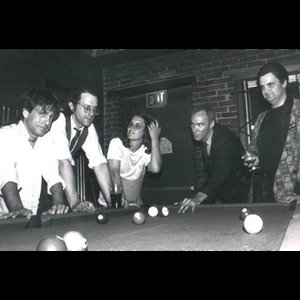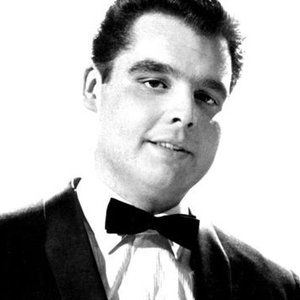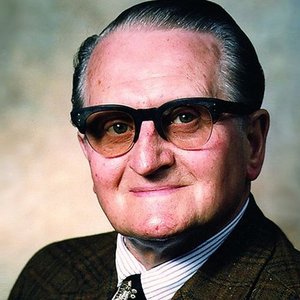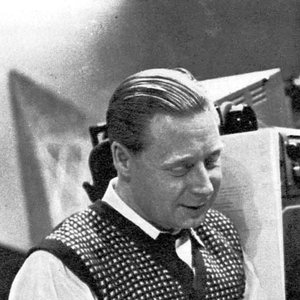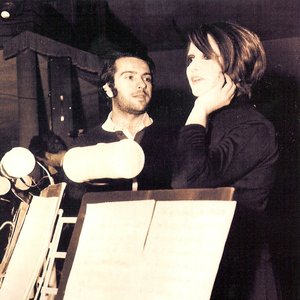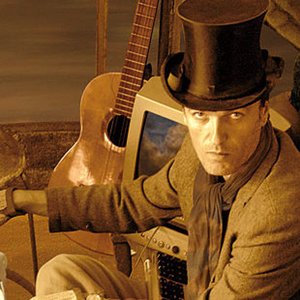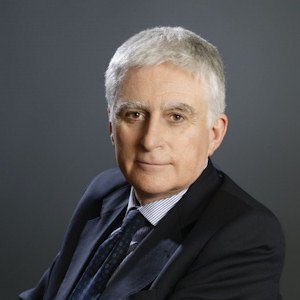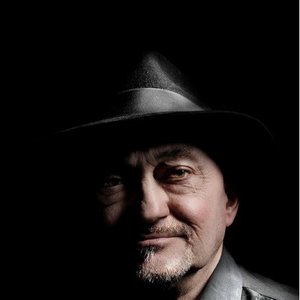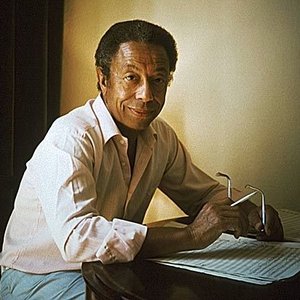Biography
-
Born
12 April 1922
-
Born In
Warrington, England, United Kingdom
-
Died
19 May 1998 (aged 76)
Throughout the 1950s and 1960s Ted Astley (b. Edwin Thomas Astley, Warrington, Cheshire, 1922. d. Goring, Oxfordshire, 1998) was perhaps the most prolific and inventive composer of British television action-adventure theme music. He was also a highly accomplished musician, songwriter and arranger of popular music, as well as composer of more formal works (an original operatic piece for Hammer's 1962 remake The Phantom of the Opera, compositions for son et lumiere performances at Hampton Court Palace and the Cairo pyramids).
He joined the Royal Army Service Corps band as a boy, playing clarinet and saxophone, and by the age of 18 was arranging both military and dance band music. After the war, he joined the Percy Pease dance band and later formed his own band, the Ted Astley Orchestra. The band appeared mainly in the north of England and was often heard broadcasting from the BBC's Manchester studios.
Following the closure of northern venues in the late 1940s, he decided to move to London and found work at music publishers Francis, Day and Hunter as an arranger for such popular singers of the period as Vera Lynn and Anne Shelton.
Astley's first film work, in 1953, was for the Danziger brothers (Edward J. and Harry Lee), a couple of British-based American producers of second features and low-cost television series: Gilbert Harding Speaking of Murder (1953), Star of My Night (1954), A Tale of Three Women (1954), all directed by Danzigers' regular Paul Dickson. He also worked on the Danzigers' suspense anthology series The Vise (which was shown via various ITV companies from 1955).
His other television work around this time included Fabian of the Yard (BBC, 1954-56) and the Boris Karloff mystery series Colonel March of Scotland Yard (ITV, tx. from 1955), the latter for producer Hannah Weinstein - an association that led to Astley being asked to write the music for Weinstein's The Adventures of Robin Hood (ITV, 1955-59) series.
Astley's popular Robin Hood theme, heralded by his famous nine-note trumpet fanfare, helped launch his career as a composer for television. For the early series he wrote original music for every episode, recording three episodes per four-hour session at Beaconsfield Studios. The conventional practice for television during this time was that only the first dozen or so episodes of a series had original music specially written in order to build up a library of incidental music for re-use in later episodes.
Running for 143 episodes and performing well in America, the Robin Hood series was also a highly lucrative assignment for Astley. It was American composer Carl Sigman, however, who wrote the familiar 'Robin Hood, Robin Hood, riding through the glen…' title song; fellow composer Albert Elms provided the greater part of the episodic underscore.
The swashbuckling exploits of The Buccaneers (ITV, 1956-57), opening with a rousing shanty over the main titles, and The Adventures of Sir Lancelot (ITV, 1956-57), employing a suitably noble signature, followed; both series produced by Weinstein's Sapphire Films. During this mid 1950s period Astley also provided the music for Adventures of the Big Man (BBC, 1956), The Invisible Man (ITV, 1958-59), the latter uncredited, Ivanhoe (ITV, 1958) and International Detective (ITV, 1959-61).
In 1959, Astley was approached to score the Canadian police drama series R.C.M.P. (Royal Canadian Mounted Police) (1959-60), a Canadian Broadcasting Corporation/BBC co-production, but was prevented from taking up the assignment by restrictions imposed by the British Musicians' Union. He did, however, supply the music for another overseas production, the Australian-filmed action series Whiplash (ITV, 1960-61).
He also worked on features, shorts and travelogues between TV recordings, including the Hammer Films productions A Clean Sweep (d. Maclean Rogers, 1958), Visa to Canton (d. Michael Carreras, 1960) and The Phantom of the Opera (d. Terence Fisher, 1962).
Producer Ralph Smart brought in Astley as musical director for the espionage series Danger Man (ITV, 1960-62; 1964-66). First produced in 1960 as a half-hour series, starring Patrick McGoohan as a NATO trouble-shooter, Astley composed the early series' title and incidental music as fast moving big brass productions emphasising a strong jazz saxophone. When the series returned in 1964 in an hour format Astley's main title theme (called 'High Wire') used a jazz harpsichord over the fast paced brass orchestra.
Astley was the first composer for British television with a familiarity with jazz and other contemporary idioms.
When the hour-long series of Danger Man was acquired by CBS (the first British spy series to be purchased by an American network), the title was changed to Secret Agent and Astley's main title composition was replaced by a new theme commissioned by the network. This new theme opened with an electric guitar riff and featured a pop-hit song ('Secret Agent Man') sung by American youth market favourite Johnny Rivers.
However, the most recognisable British TV theme of the era was Astley's simple seven-note phrase over the introduction to The Saint (ITV, 1962-69), signalled on screen at the start of the opening credits with an animated halo appearing above series' star Roger Moore's head. Based on the series of popular adventure novels written by Leslie Charteris (who was actually credited with the opening bars of the theme later in the series), The Saint was one of the most successful action-adventure series of the 1960s, both in Britain and the USA. Astley recorded several sessions for the early series that were then re-used for the remainder of the series.
Both Danger Man and The Saint were ATV/ITC productions, the successful Sir Lew Grade combine that was responsible for several popular mid-Atlantic filmed series of the 1960s. Astley's arresting use of jazz colours and rhythms during this period included works for the ATV/ITC series Gideon's Way (ITV, 1965-66), The Baron (ITV, 1966-67), The Champions (ITV, 1968-69), Department S (ITV, 1969-70) and Randall and Hopkirk (Deceased) (ITV, 1969-71).
In 1969, he was called upon to compose the music for Sir Kenneth Clark's 13-part historical documentary series Civilisation (BBC) and provided an appropriately majestic and evocative composition featuring heavy organ music.
In the late 1970s, he moved from London to Oxfordshire to enjoy early retirement. He continued his involvement in music, however, converting a garage into a recording studio and acquiring a number of state-of-the-art synthesisers, building up a successful music library.
Remaining ever-active, he orchestrated several pieces of music for his son-in-law, The Who's Pete Townshend (married to his daughter Karen). Astley went on to become one of the first to orchestrate symphonic pop for large orchestras. In 1997, he was delighted to see The Saint theme enter the music charts (at number 5) by the electronic band Orbital.
Artist descriptions on Last.fm are editable by everyone. Feel free to contribute!
All user-contributed text on this page is available under the Creative Commons Attribution-ShareAlike License; additional terms may apply.

